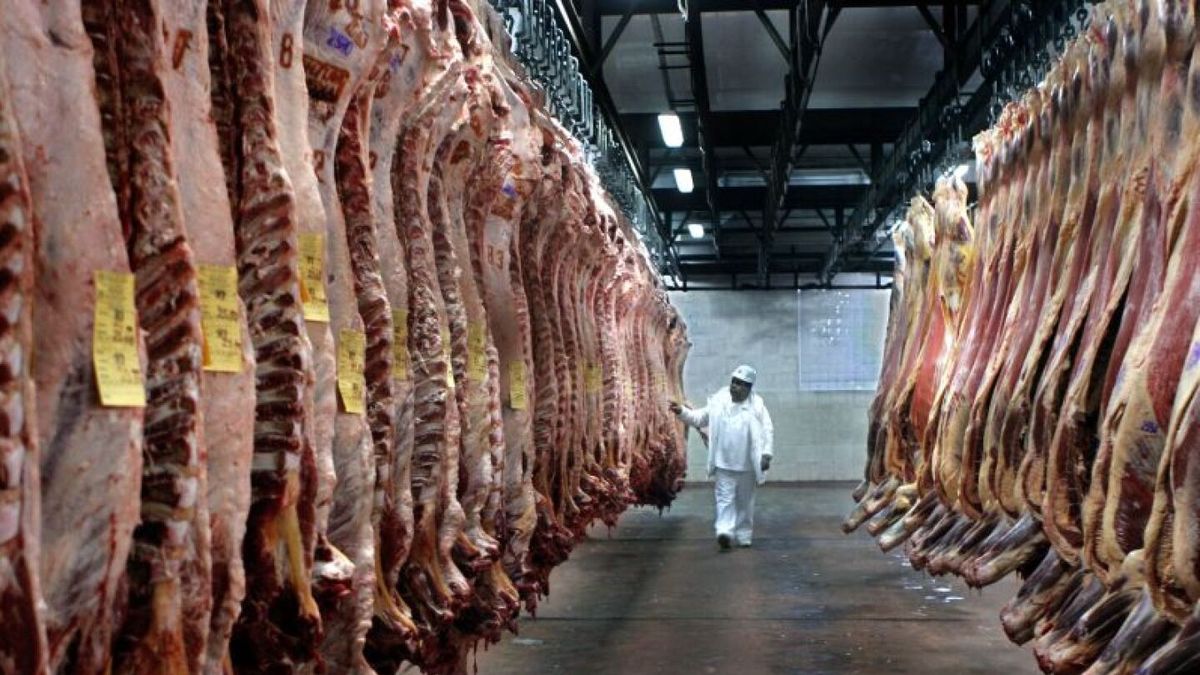The head of MGAP, Fernando Mattos, referred to the situation that the local slaughter market may face following the important operation of the Brazilian company.
The minister of Livestock, Agriculture and Fishing (MGAP), Fernando Mattos, referred to the controversial announcement made by the Brazilian company Minerva on the purchase of three of the four plants of his compatriot Marfrig, and the fact that, with this operation, the company will have control over 45% of the refrigeration industry in Uruguay. In that sense, he analyzed the advantages and disadvantages that this important operation may bring to the local market.
The content you want to access is exclusive to subscribers.
For Mattos, The Uruguayan slaughter market has not yet reached its ceiling, and this is a determining factor when considering the effects that the Minerva-Marfrig merger may have on the refrigeration industry. “Uruguay has an installed capacity that is even growing because in a few years we have more actors operating, industries that have expanded in their capacity, the Tacuarembó meat processing plant itself is going to go to 1,500, 1,600 cattle per day,” he exemplified, in dialogue with Radio Carve.


In that sense—and also pointing out the improvement in the slaughter levels that the Breeders and Packers Uruguay (BPU) meat processing plant can achieve, as “it has capacity and industrial infrastructure as well”—the minister explained that “in reality Uruguay has not managed to sustain an extraction and slaughter of around or greater than 2,400,000 cattle and this clearly determines that the installed industrial capacity that exceeds 3 million networks, has a partnership factor that normally ranges between 30%, 40% and even 50% in some cases.”
Considering this, Mattos pointed out that the purchase of the Marfrig plants by Minerva is not necessarily something negative in advance. Although the government’s concern is that, if the operation does not take place, Marfrig will close some of its refrigerators – something that, in principle, the Brazilian company indicated will not happen; The investment side itself is something that does not displease the authorities.
In this regard, the head of the MGAP acknowledged that on the one hand Uruguay goes out to the world asking “that investments come because they do not want to involve the name of the companies, nor the people, nor the management, which seems to me to be companies that have bet on Uruguay, “They have done their things well, but in this recomposition of what the work structure is, I also don’t like it very much that a company, whatever it may be, has more than 40% of the country’s work capacity.”
“It’s a alert factor. Maybe nothing will happen, but it can be a distorting factor in price formation and I believe that there is nothing more important in Uruguay than the commercialization of livestock in volume,” considered the leader, leaving room for the benefit of the doubt.
The government, between a rock and a hard place
Despite the concerns and uncertainties caused by the Minerva-Marfrig merger, Mattos considered that for the government “it is a complex decision not to allow the deal to be completed.” One of the issues that is on the table is that there is a Saudi capital group —country with which Uruguay actively works to bring positions closer together—which manages a subsidiary of Marfrig and is linked in one way or another to the two companies.
In that sense, the head of the MGAP said that “that is an important factor in the analysis to see what environment we are in. Here the two companies that supposedly have to compete have a link, which is the group salik, who will have a stake in both companies. It is also true that this business, the Uruguayan business, let’s say that, within the total operation, is a minority part of the global business. She was left out of what she is Brazil, Argentina and Chili. But if we analyze the overall business individually, this Uruguayan business is the 6% of the total operationit should not have a greater impact on the final result although we do care a lot about what happens here internally.”
Source: Ambito




